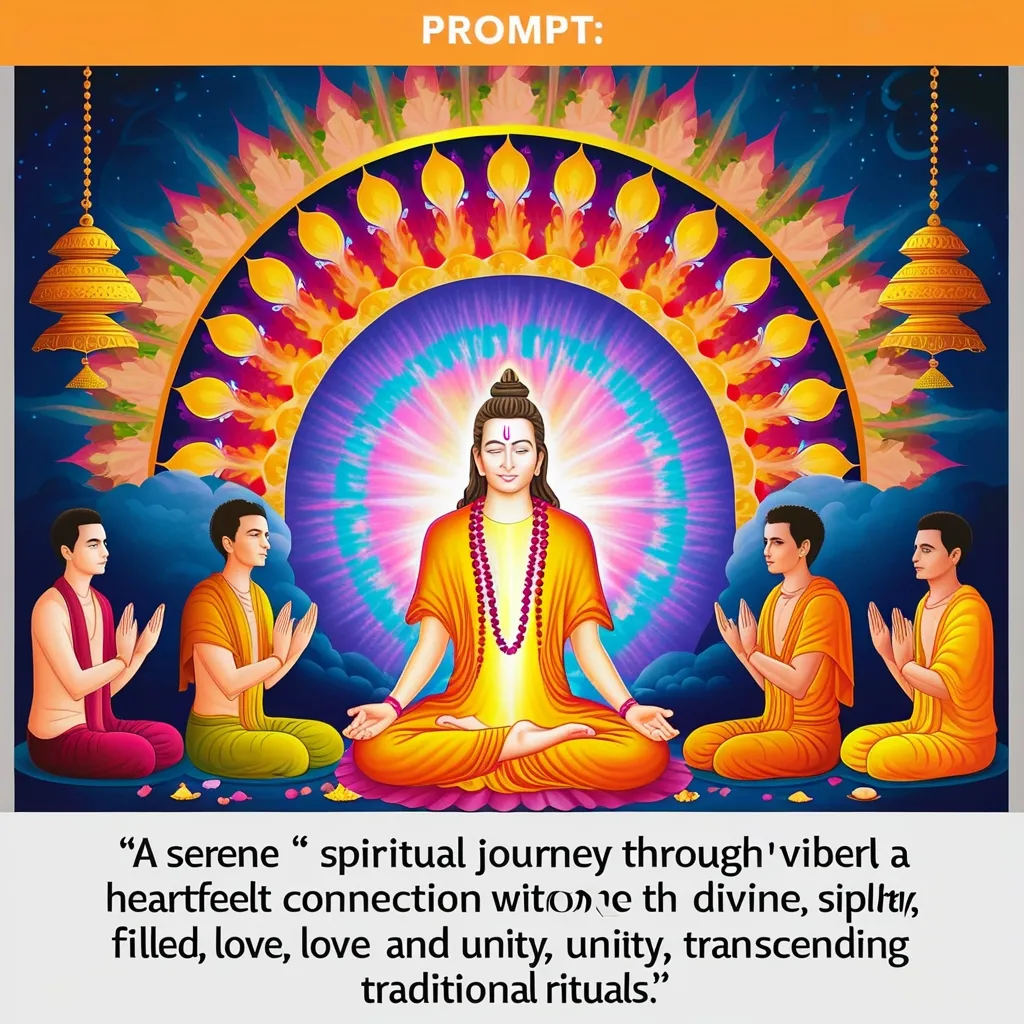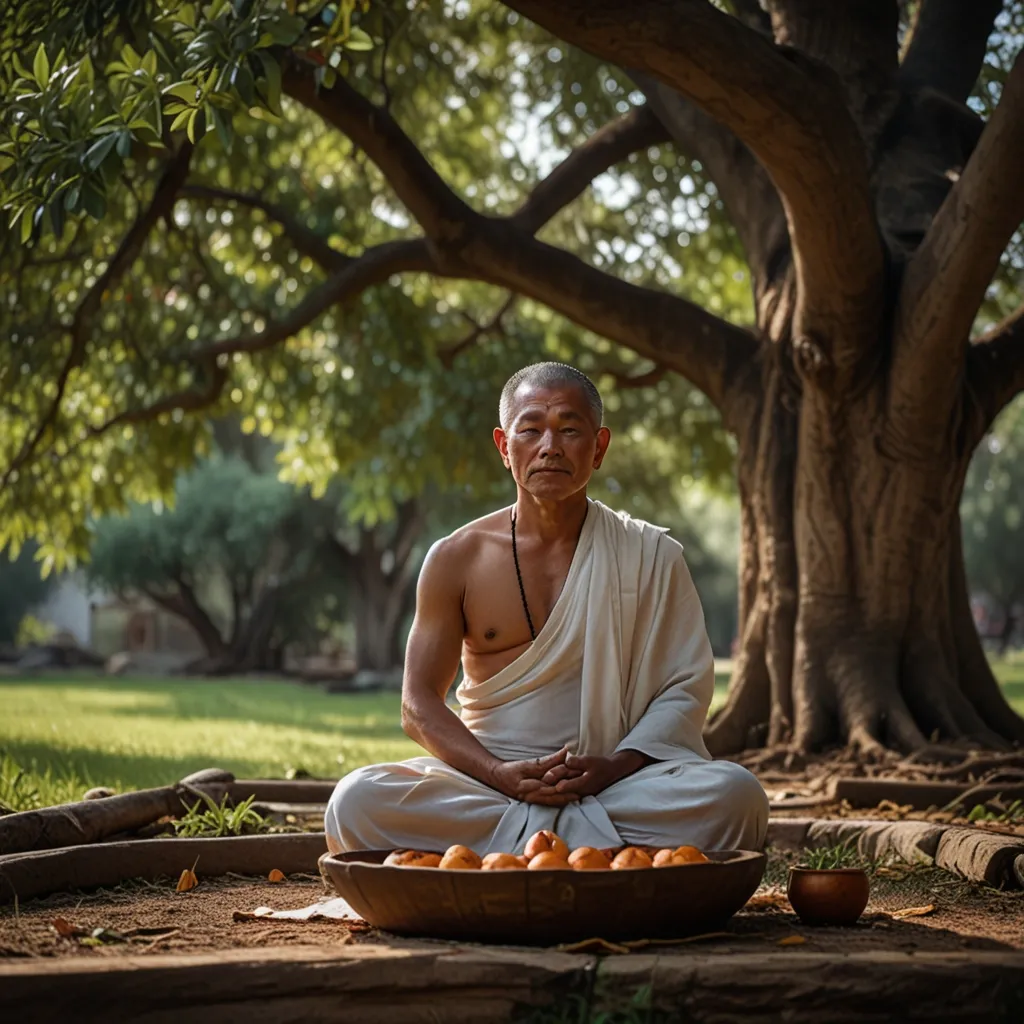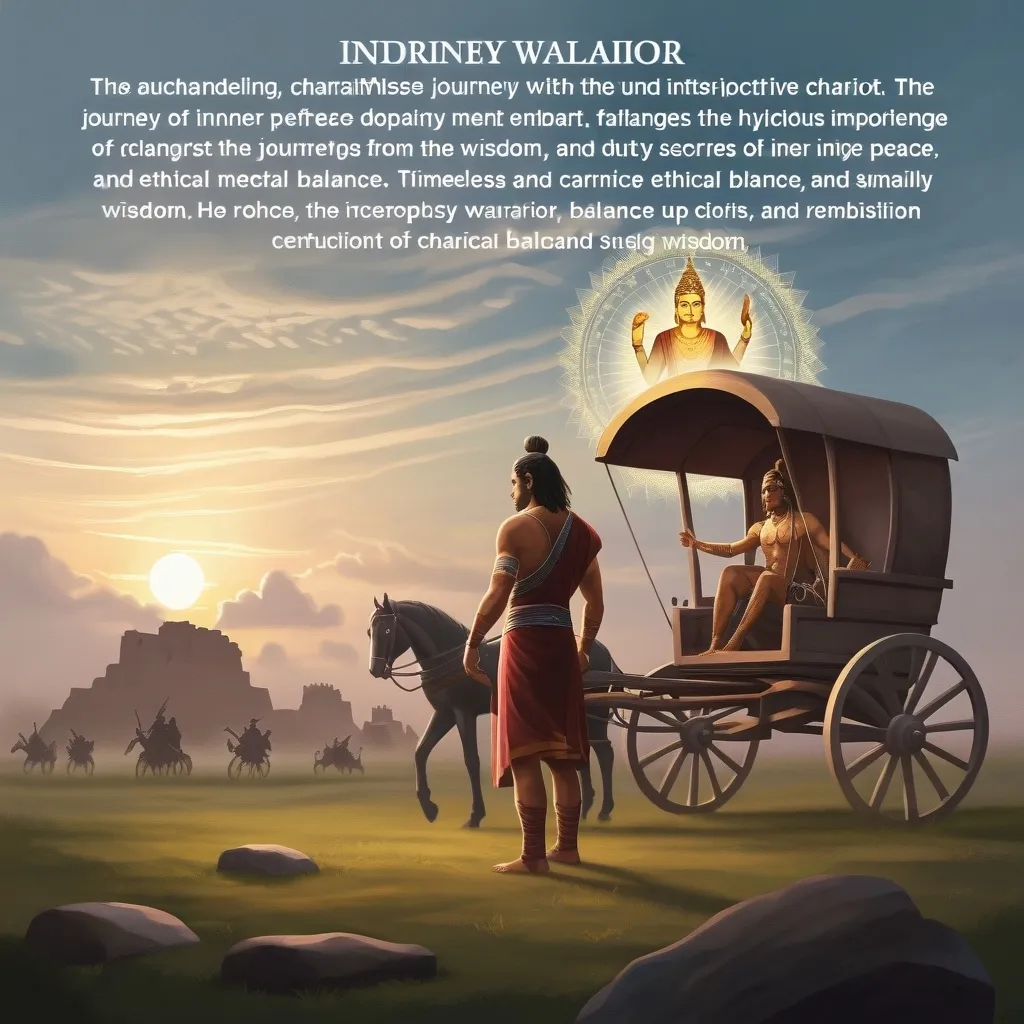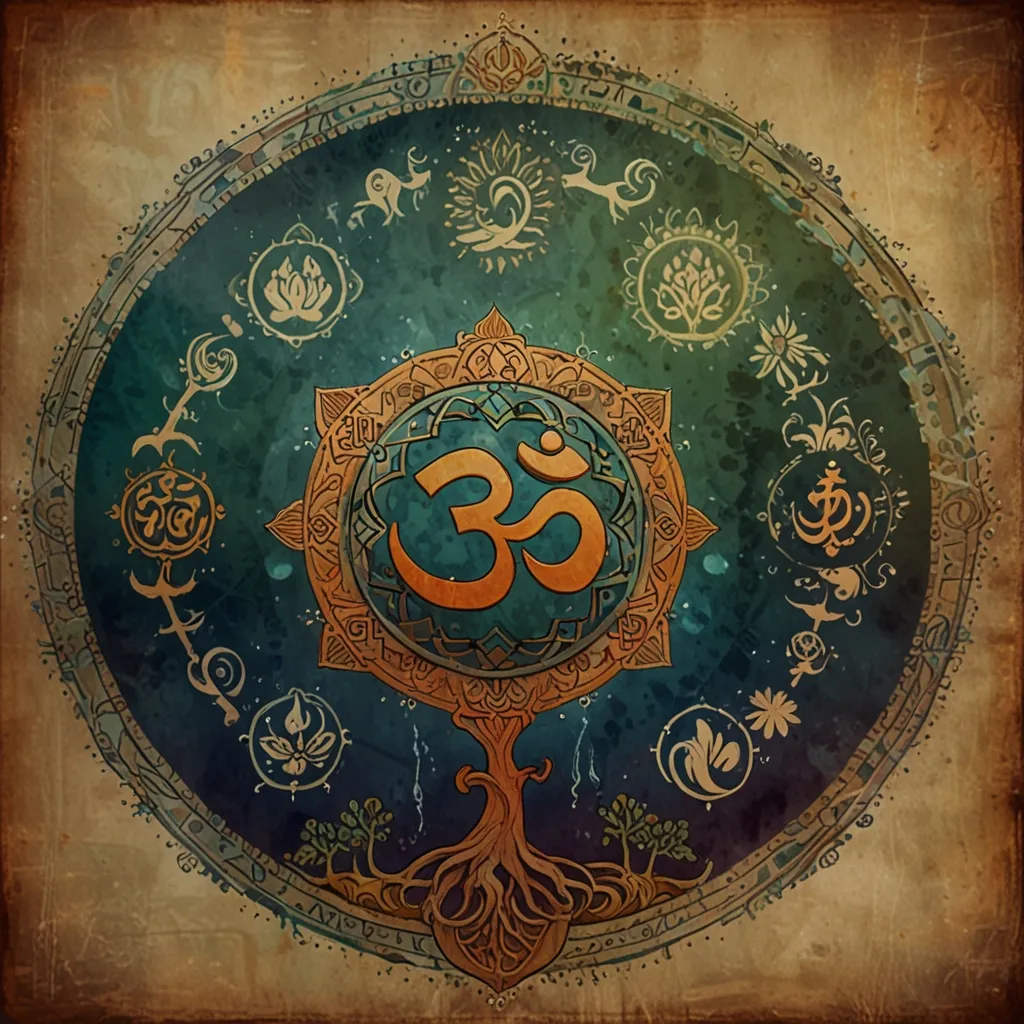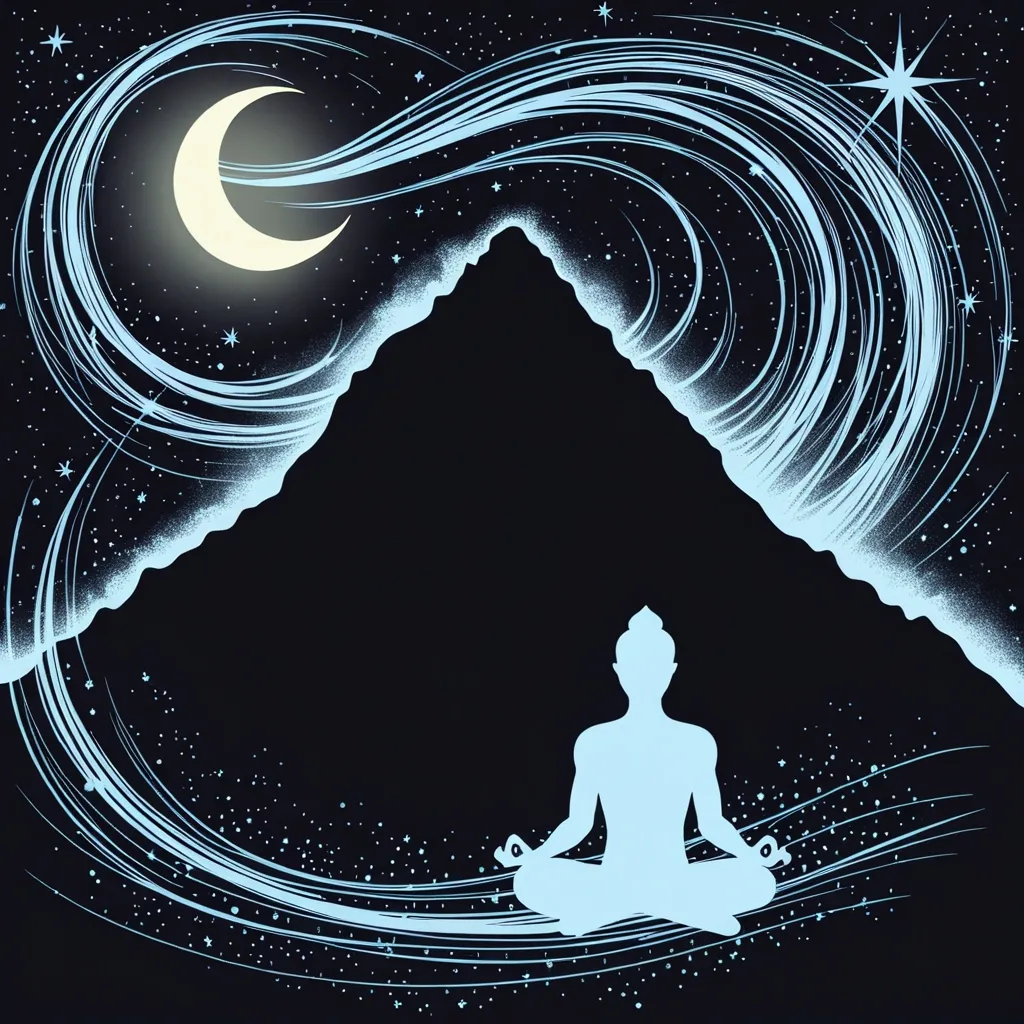Picture this: a journey woven with emotions, not bound by rituals, yet reaching right into the heart of spirituality. Welcome to the colorful world of Bhakti, a soulful path that threads its way through Hindu spirituality like an enchanting melody. This journey isn’t your run-of-the-mill ritual; it comes straight from the heart, connecting deeply with the divine.
Bhakti isn’t just about devotion; it’s something much larger and profound. Its roots go deep into the word “bhaj,” harbored by the ancient language of Sanskrit, which means to share or enjoy. Imagine a love story, but not the typical romantic one—this is a spiritual romance, an intense affection that swells within a devotee’s heart. What makes Bhakti fascinating is its versatility. It isn’t dedicated only to one god or goddess; devotion here spills over to the Supreme Self, the Formless Ultimate, or even a wise guru, making it a tailor-made spiritual path for many.
In its essence, Bhakti is about letting go, surrendering one’s ego and individual identity to merge with the beloved deity. It’s like diving into an ocean where external distractions fade away, leaving just you and your divine connection. Bhakti thrives on simplicity and purity. It’s all about making every thought and action an expression of love, turning life’s daily grind into a sacred offering.
Think about the usual religious rituals. They involve precise steps, chanting, offerings. Bhakti goes beyond this structured routine. It’s not constricted by where you are, whether in a temple or stuck in daily traffic. It’s a breathing, living experience, a constant echoing reminder of the divine in every beat of a Bhakta’s (devotee’s) life. This kind of devotion remains dynamic, a force that pulses with every heartbeat.
You know that feeling of happiness when you accomplish something purely out of love, without expecting anything in return? That’s Bhakti. It’s practiced for the sheer joy of communion with the divine, not for wealth, not even for spiritual liberation. The joy derived from loving and experiencing the divine firsthand is nuanced in emotions ranging from overwhelming love to the longing of separation.
And while Bhakti finds its home in Hinduism, its soul resonates globally. The love for the divine expressed through Bhakti transcends religious tags, making it a universal concept seasoned with cultural diversity. Different communities around the world experiment with its flavors, each adding richness to the global tapestry of devotion.
What makes Bhakti quite special is its emotional intensity. It’s not just an emotional commitment; it’s a transformation. Imagine loving someone so deeply that the very fabric of your life changes. That’s what Bhakti does; it touches the soul and the society around it. It encourages compassion, harmony, and respect for life, igniting change wherever it flows.
The journey through Bhakti leads to spiritual maturity. As one follows this path, ego and worldly attachments fall away like autumn leaves, revealing the true sparkle of the divine self. Embarking on this adventure is as much about understanding oneself as it is about connecting with the divine. It’s like finding pieces of the divine in oneself without claiming to become the divine.
Bhakti isn’t a practice that’s limited to prayer rooms; it’s present in the mundane routines of daily life. Consider waking up every day, seeing beauty in every sunrise, drawing the divine into every little thing you do. From chanting holy names to mindful living, Bhakti makes every moment sacred, turning the ordinary extraordinary.
What’s heartwarming about Bhakti is its welcoming nature. It doesn’t care about social class or educational background. It’s a pathway open to all who approach the divine with sincerity. This inclusivity played a pivotal role during the Bhakti movement, a part of history where devotion bridged gaps across societal divides.
The Bhakti movement stirred changes during medieval times, advocating personal devotion and dissolving community barriers. Saints and poets became the voices of this movement. The likes of Lord Basaveswara promoted societal inclusion, reminding everyone that love and devotion don’t discriminate.
Bhakti has left behind a legacy of unity, showing humankind that we’re all connected as children of the divine. It binds human experience within a shared emotional framework. Even today, Bhakti shapes modern spirituality, providing a profound route to enlightenment and growth.
So, in its purest form, Bhakti is less a practice and more a journey. It’s an emotional, personal voyage overflowing with love for the divine. It softly transcends formal religious practices, offering a universal heartfelt path to enlightenment. This vibrant practice not only transforms the inner world but leaves ripples across the wider pond of the human condition, continually guiding seekers towards a divine presence.
